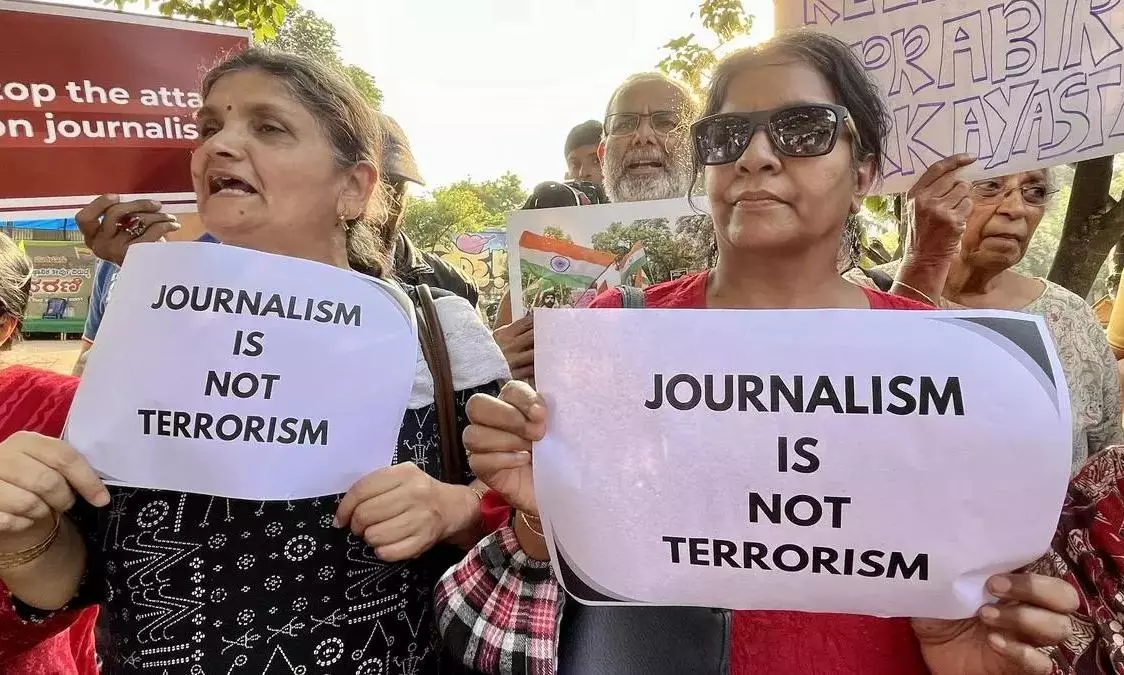
Govts deploy financial laws to suffocate independent media: global report
text_fieldsA new joint report by the World Association of News Publishers (WAN-IFRA) and the Inter-American Press Association (IAPA) reveals how governments around the world are increasingly leveraging financial laws to suppress independent media.
By deploying these legal mechanisms, authorities undermine media organisations’ financial stability, impede their operations, and harm their reputation. The report examines case studies from eight countries where journalists and media outlets have been subjected to significant financial accusations, especially in environments known for authoritarian policies.
The report points to the widespread use of financial charges in countries such as Azerbaijan, Hong Kong, and El Salvador, which have resorted to various financial accusations to pressure journalists and restrict their freedom.
The cases include high-profile examples from India and the Philippines, where prominent news organisations and journalists have been entangled in legal battles that threaten their financial stability. One such case involved Nobel laureate Maria Ressa and her organisation Rappler, which faced tax evasion charges that inflicted substantial financial strain on the outlet.
In India, the investigative outlet NewsClick faced a series of raids and accusations over alleged foreign funding violations. The Indian government’s response involved arresting key personnel, confiscating hundreds of electronic devices, and freezing assets, a strategy that severely disrupted the outlet’s operations.
Financial accusations, typically administered under criminal law, have allowed governments to subject journalists to extended pre-trial detention and substantial fines, with journalists often denied access to personal and organisational bank accounts during investigations. This extended asset freeze disrupts the media’s ability to function effectively, hampering their reporting capabilities.
For NewsClick, for instance, recent actions against the outlet followed its coverage of the Indian government’s response to issues such as the COVID-19 pandemic and the farmers’ protests, topics that sparked controversy within the country, The Wire reported.
Legal proceedings against its founder, Prabir Purkayastha, were marked by procedural issues, prompting his eventual release by the Supreme Court, which ruled that certain rights had been breached in his arrest.
The report further highlights the burden of legal defence in these cases. Independent media organisations often lack access to the resources needed to defend themselves against tax and financial allegations, such as specialised lawyers and forensic accountants. The financial cost alone often outweighs the capacity of many news outlets, leaving them vulnerable to prolonged legal challenges that strain their resources and diminish public confidence in their work.






















